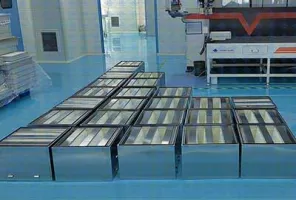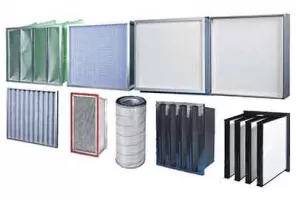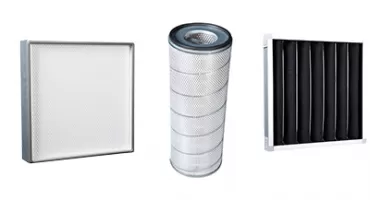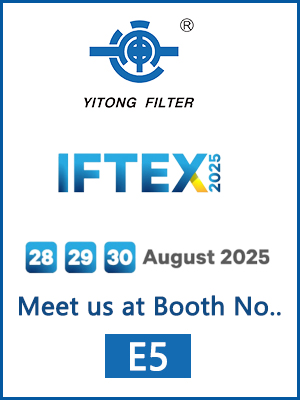 October 31, 2025
October 31, 2025
In today's world, clean and healthy air is more important than ever. Whether it is a hospital, laboratory, cleanroom, or even a modern home or office, people want air free from harmful particles like dust, bacteria, viruses, and allergens. That is where H13 HEPA filters come in. These high-efficiency filters are trusted across many industries because they capture extremely small particles and help create safer environments.
In this article, we will explain what an H13 HEPA filter is, how it works, its key benefits, and where it is commonly used. We will also compare H13 to other HEPA grades so you can easily understand which filter is right for your needs.
An H13 HEPA filter is a high-efficiency particulate air filter rated to remove 99.95% of airborne particles ≥ 0.3 microns. According to the EN 1822 standard, HEPA filters range from H10 to H14, and H13 is one of the top grades.
give you an idea, particles around 0.3 microns include:
Fine dust
Pollen
Bacteria
Mold spores
Some viruses
PM2.5 pollutants (common in urban air)
H13 filters are designed for environments where very clean air is required.
Unlike simple mesh filters, H13 HEPA filters use advanced microfiber media arranged in deep folds (pleats). They trap particles through several physical mechanisms:
Filtration Mechanisms
Interception: Larger particles stick to fibers as they pass by
Impaction: Heavy particles crash into fibers instead of flowing around them
Diffusion: Tiny particles move randomly and get trapped in fibers
Electrostatic effect: Charged fibers attract particles
Together, these methods ensure extremely high filtration efficiency without blocking airflow too quickly.
| Filter Type | Efficiency | Typical Use |
|---|---|---|
| H10–H12 | 85%–99.5% | General ventilation, residential |
| H13 | 99.95% | Medical, cleanrooms, precision manufacturing |
| H14 | 99.995% | Pharmaceutical cleanrooms, biosafety labs |
| H13 | H14 |
|---|---|
| 99.95% filtration | 99.995% filtration |
| Extremely clean air | Ultra-critical air purity |
| Common in hospitals, electronics | Used in high-level labs and pharma production |
If you need premium filtration but not ultra-critical, H13 is a cost-effective and highly reliable choice.
✅ High efficiency: Removes bacteria, fine dust, allergens, and many virus-sized particles
✅ Cleaner indoor environment: Improves health and comfort
✅ Better air quality control: Ideal for controlled environments
✅ Reliable performance: Meets strict industry standards
✅ Compatible with many HVAC systems and air purifiers
H13 filters also help businesses meet air quality regulations and protect sensitive processes.
H13 filters serve both industrial and residential applications.
Industrial & Commercial Uses
Cleanrooms (semiconductor, pharmaceutical, biotech)
Hospitals and surgical rooms
Laboratories and research facilities
Food processing plants
Paint spray booths
Medical device manufacturing
Residential & Office Uses
Premium air purifiers
High-end HVAC systems
Luxury homes & commercial buildings
Schools and public facilities
With growing awareness of indoor air quality, more home and office systems now adopt H13 filters.
When selecting an H13 HEPA filter, consider:
Filter size and airflow capacity
Frame material (aluminum, galvanized steel, plastic)
Media type (glass fiber or synthetic)
Sealing method (gel seal or gasket)
Operating temperature and humidity
Certification (EN1822, ISO standards)
Always buy from reputable manufacturers to ensure true HEPA performance.
Maintenance Tips
To keep your H13 filter working properly:
Replace filters on schedule (usually 6–12 months depending on use)
Ensure airtight installation to prevent leakage
Monitor pressure drop in HVAC systems
Avoid washing unless specifically labeled washable
A clogged or poorly installed filter cannot deliver clean air.
H13 HEPA filters play a vital role in creating cleaner, healthier, and safer environments. With 99.95% filtration efficiency, they are widely used in hospitals, cleanrooms, industrial facilities, and high-end residential systems. If you need reliable, high-quality air filtration, an H13 filter is an excellent choice.
Clean air is not just a luxury—it is essential for health, productivity, and safety.
 Sep. 24, 2024
The Ultimate Guide to HEPA Filters: Why They Matter for Clean Air
Sep. 24, 2024
The Ultimate Guide to HEPA Filters: Why They Matter for Clean Air
 Apr. 17, 2025
HVAC HEPA Filters: Everything You Need to Know
Apr. 17, 2025
HVAC HEPA Filters: Everything You Need to Know
 Jan. 15, 2024
Air Filters Used in the Electronics Manufacturing Industry
Jan. 15, 2024
Air Filters Used in the Electronics Manufacturing Industry
Choose Yitong Filter to help maintain production operations and ensure the safety of workers.

